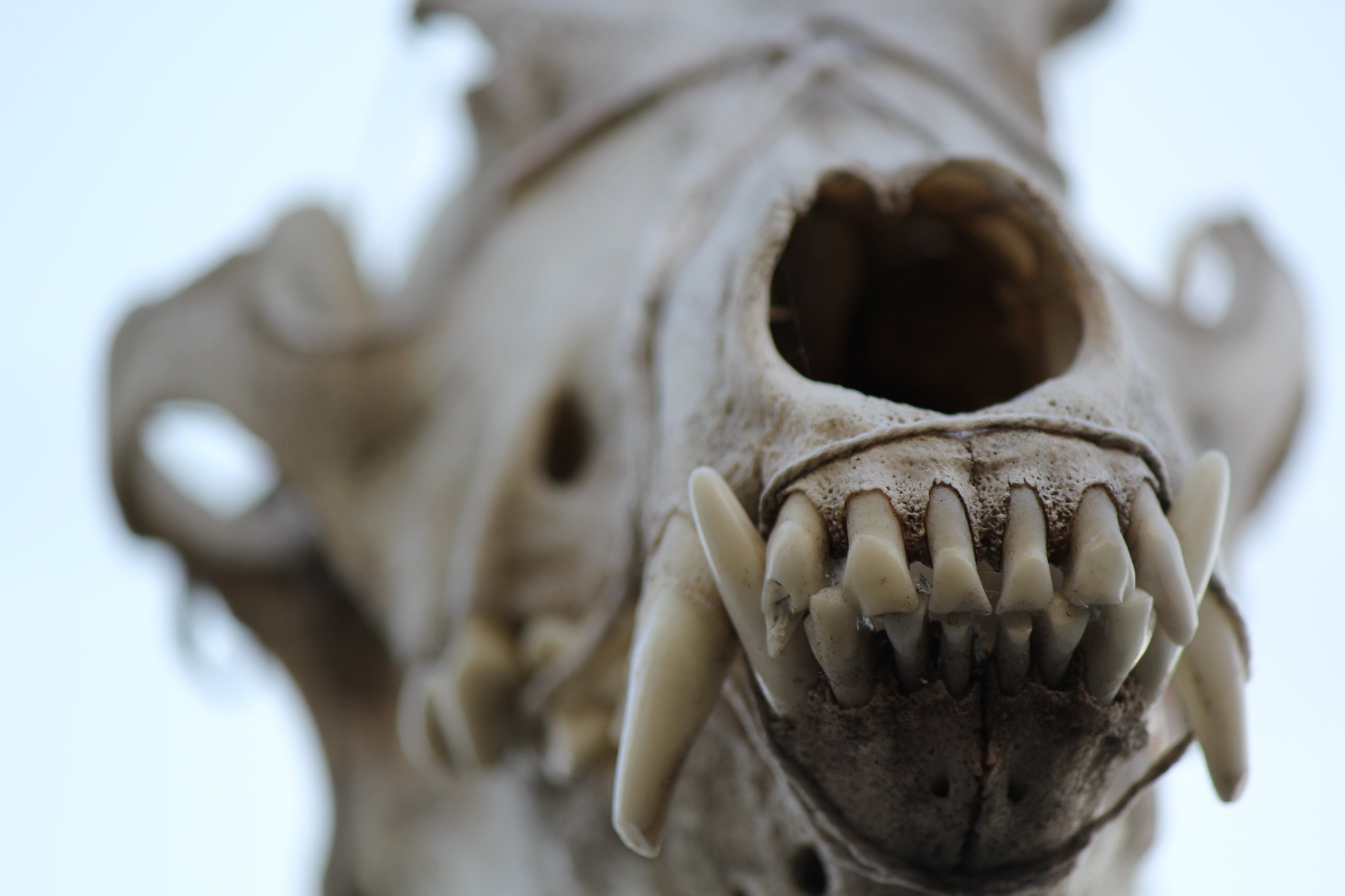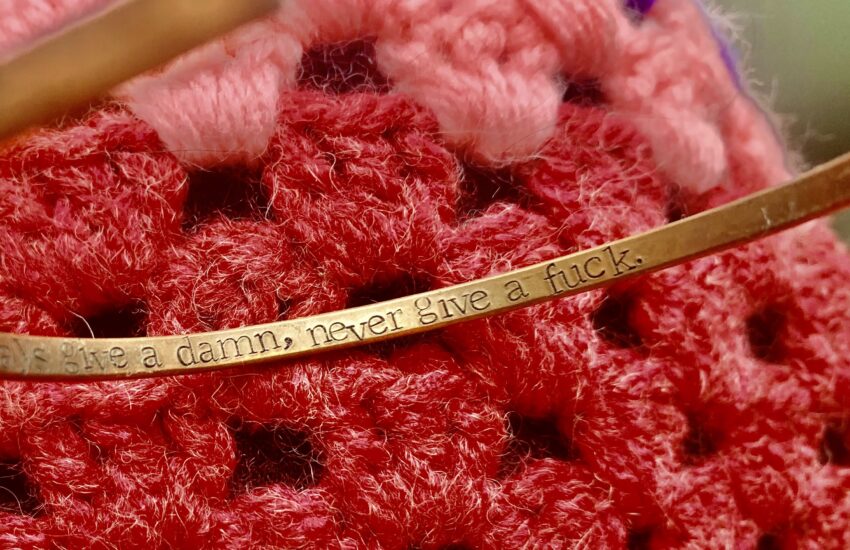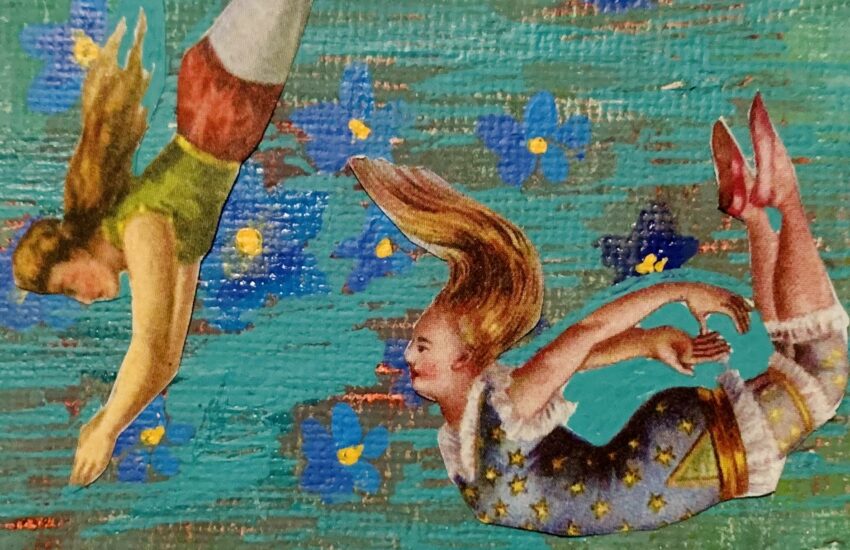Happy New Year, chupacabras
Yesterday I watched a video of a shiny social media influencer, the kind of person that was out taking a walk while making videos of herself giving advice, the person I was going to unfollow but online friends follow and swear she’s changed their self-talk so I still begrudgingly follow. Flying through the air on a playground swing, she announced something to the effect of, “The things you don’t want to do the most are often the things that you need to do the most!”
I have yet to figure out how to meditate, but I live very much in my head and physically do not comprehend people who allegedly don’t have an internal voice. My inner voice is always there, almost always anxiously humming away, and very present when I’m doing mindless things like the dishes, folding laundry, walking, or, sometimes, driving (I am the person who is like, OH, I’M IN CARE AND CONTROL OF A MOTOR VEHICLE! but my auto-pilot is safe; see: crushing anxiety).
One of my recurring thoughts is that I wish there were some mechanism to transmit my walking-driving-laundry processing to a notebook or, more realistically, a Note. And today, I realized that the conduit that beams thoughts to paper is… me.
It’s me doing the thing I don’t want to do that is a thing I really need to do, as per Shiny Influencer.
So here I am, doing the thing.
It may be a sign that my media consumption has shifted, or maybe it’s a sign that I am not alone in my utter exhaustion, but this is the first time that the new year rolled over with noticeable messaging of, “The idea that January is a new year with a fresh start you need to blaze into comes from the Gregorian calendar so if you feel more like hiding in a cave, you’re actually in tune with your ancestors.”
My Celtic-Slav blood is not exactly singing with the promise of spring. I am slow. I am tired. For years, I have tried to explain my chronic pain with, “My bones hurt.” As 2022 turns to 2023, my bones are not just hurting; they are holding several years of profound — bone-deep — fatigue. I’m up with the moon every night, and morning is not my friend.
In the earlier days of the pandemic, past the time when everyone panicked and into the time when everyone pivoted — the first pivot, the one where we told ourselves that this would be over in a few months if we just altered course a little bit longer if we held on for the vaccines that would come —
Just writing the words ‘if we held on for the vaccines that would come’ ties a knot in my stomach that I don’t think I’m ready to untie. Picking that end of yarn out from the ball won’t give me a continuous thread to crochet into something that makes sense – orderly, tidy, and ultimately functional. Instead, picking that end of yarn out from the ball will snarl it around the other scraps that have wound around one another.
As much as I try to keep my eyes forward and my game face on, the last few years have been trauma, micro and macro, and maybe they feel like a blur because I’m not ready to bring them into focus.
Anyway.
— if we held on for the vaccines that would come, the eeriness and isolation wouldn’t be forever. What I remember most is making my farmer’s market orders online, driving downtown every Sunday into what always felt like a vaguely apocalyptic scene, but not ‘everything is on fire’ apocalyptic.
Tidy, orderly apocalyptic.
Almost no cars on the highway. Set times to pick up cardboard boxes of local fruits and vegetables and preserves, a lifeline to other people.
Drive past the digital STAY SAFE, STAY HOME sign, swallow the anxiety, join the vehicular line-up, watch for families on foot and bicycle, roll down the window, try to remember if it’s under Bradley or Cybulski this week, wait for the volunteers to place the box on the table and retreat six feet, get out of the car, retrieve the package and put it in the hatch of my now-long-gone car, yell “THANK YOU!” from six feet away, watch for too-close people before getting back in, drive home and wait another week for human contact.
The immediately apocalyptic feeling has faded because I’ve layered it with a hefty dose of denial and dissociation and also because most of the world is acting like everything is fine. A large part of me thinks that everyone has agreed that the emperor’s clothes are, in fact, quite beautiful because to admit otherwise means pulling at that knot of collective and individual trauma.
I am acutely aware that I’m living through a historic era that is historic for terrible reasons. I have pored over enough photos from the Spanish Flu to understand this, though I am not so sure that there will be historians left to write about us. If there are I hope we get to the viva la revolución part un poco más rápido.
I am well-primed to be terrified of how this all ends.
My family spent weeks in Florida, on the Gulf of Mexico, every March. Whenever I heard “hurricane watch” on the news, I knew we would be swept into the ocean and die (even though we made it through Hurricane Andrew just fine). Every spring, when daylight saving time ended, I breathed a sigh of relief because it would be brighter earlier in the morning, and my need to stay up through the night, through the dark, would abate an hour earlier so I could get some sleep.
Instead of telling me that the switch halfway down the basement stairs would turn off the water heater, my grandmother told me that it was connected to a bomb and that if I hit it, the house would explode. So for most of my childhood summers, I carried the weight of potential responsibility for blowing up my family. For the other half of my childhood summers, at my other grandmother’s house, I would stay up at night, blinking into the wood panelling and saying a silent prayer, over and over, that there were no bombs in this house that I might accidentally trip.
My sister and cousins used to make fun of me for being a wimp and for not being able to handle Unsolved Mysteries, but to this day, I am still pretty sure a chupacabra will jump out of the bush and leave my desiccated corpse on the side of the road if I don’t actively ward it away.
One time, in the pitch black middle of the night, laying in the tiny single bed my Poppa built for me so I could be in the same room as my parents’ bigger bed when we slept over, I convinced myself that my dad had turned into Sasquatch and cried until he woke up, decidedly human. I still can’t forget the kid who got her tongue stuck in a Yoohoo bottle; thank you, Rescue 911 episode aired on February 22, 1996.
Once, my exasperated mom told me my stomach would explode if I over-ate at a restaurant in Florida. “And I just showered,” she said, so I very carefully did not over-eat until I was a teenager and learned that stomachs do not explode. Before Christmas this year, she offered me an electric blanket, and I sincerely asked if spontaneous human combustion was a risk.
I have solved many unsolved mysteries in my mind: the killer is under my bed, the monster is lurking everywhere, chupacabras are very fucking real, but if you shine your flashlight hard enough and walk fast enough, they won’t get you.
You would think this inherent fear of everything would make me a good apocalypse planner, and on the surface, it’s somewhat true. Unfortunately, I’m mostly riding on the tails of my type-A sister, who has a plan (it involves grand theft airplane, which is cool because we have some pilots in the family). Mid-pandemic, I started actually thinking about the plan and how I’d probably have to physically lug my kids around, piggyback them and hope I could outrun the zombies, and try to keep older family members safe from the zombies.
My stomach started to hurt so much that my new plan is to sit and hope that zombies aren’t real, and if they are, I’m going back to the desiccated corpse thing.
The pandemic is real, but it’s a slow-moving zombie. As acutely aware of this time in history as I am, I am also aware that we’re the frogs in the boiling pot. It’s January, and the grass is green shortly after a godawful blizzard. I haven’t had a family doctor in three years and counting. I give my change to street-involved people because so many of them look like people I know, people who missed a few rent payments, people who could be me in a bad turn, people with resumes and grandkids who just want to check their email and find a cigarette and stay warm.
The Before Times is an even cleave — we moved nine months before Canada shut down. We gestated a different life in a new place, prepared to birth it, and chaos was born instead. For a solid year, “We never should have moved” came out of my mouth at least weekly, but it’s not the place; it’s all the trauma that makes my throat close up. It’s the Big Thing Deserving of Anxiety perched on top of the Jenga blocks of 34 years of anxiety.
I don’t know what my Julian-calendar ancestors were doing this time of year. I doubt they were worried about pandemics or healthcare or if they were navel-gazing too hard. They were concerned about survival, and so am I, on some cellular level.
So I’m not pledging to lose weight, pick up a new hobby, or even be a better person. This is, historically, a truly terrible time for renewal.
But I would like to figure out how to live through this, even if the water is boiling around me, chupacabras and all.
“El Chupacabras” by Pablo Spekuljak is licensed under CC BY 2.0.



